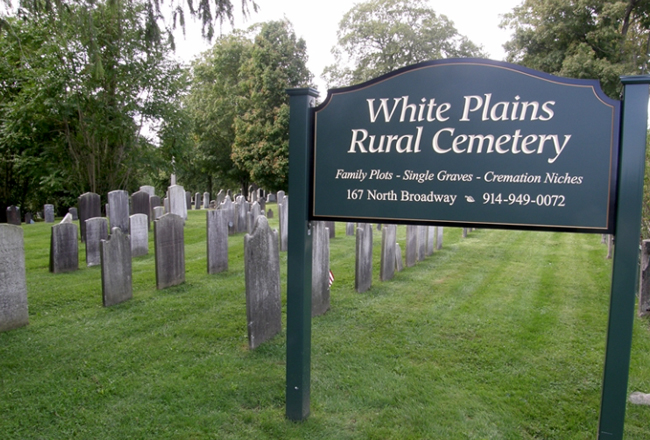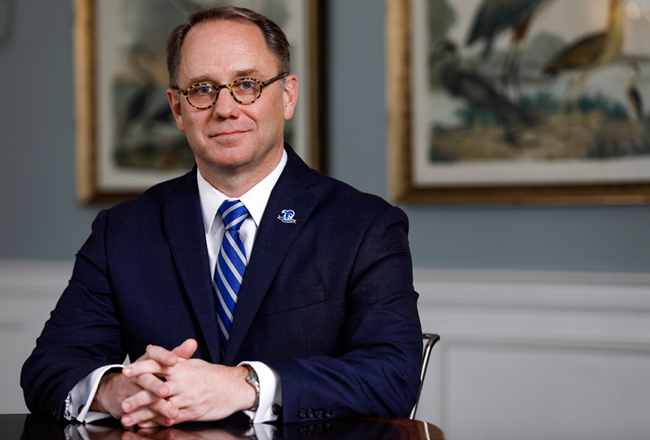White Plains Rural Cemetery Association should be allowed to build a crematory, an appellate court has ruled.
The city of White Plains had challenged a lower court ruling that said the Zoning Board of Appeals acted improperly in denying a use variance for a crematory.
 But the zoning board”™s decision was “arbitrary and capricious,” the Second Appellate Division ruled on Jan. 30, in upholding the lower court”™s decision.
But the zoning board”™s decision was “arbitrary and capricious,” the Second Appellate Division ruled on Jan. 30, in upholding the lower court”™s decision.
White Plains Rural Cemetery has been operating as a private, nonprofit, nondenominational burial ground since 1854. It has 30 acres at 365 N. Broadway, between Interstate 287, Metro-North Railroad tracks, industrial properties and residences.
It is in a residential zone but it predates the zoning laws and has been classified as a legal, nonconforming use.
In 2014, the cemetery applied for a building permit for a crematory. It was operating at a loss. It was running out of property for burial plots. It could not afford to build a mausoleum and re-inter bodies. But it recognized a growing interest in cremation, according to court documents, and saw a way to turn a surplus.
The building department denied the permit, taking the position that a crematory was not an allowable use and that the cemetery would need a variance.
The cemetery appealed to the zoning board.
The North Broadway Citizens Association objected to the proposed crematory, citing the perception of “the burning of dead bodies within the site and scent of people”™s homes.”
Residents voiced concerns during three public hearings about environmental impacts, real estate values and traffic.
The cemetery countered with expert opinions. The crematory would not be “seen, heard, or smelled by virtually all surrounding properties.” It would be too far away to alter the essential character of the closest neighborhoods. While burials generally draw 20 to 30 cars, cremations are attended by fewer people with one or two cars.
The zoning board rejected the cemetery”™s argument and upheld the building commissioner”™s denial of a permit. A variance would be necessary, it ruled, and then it denied the variance.
The cemetery petitioned Westchester Supreme Court to overturn the decision.
Justice Helen M. Blackwood said in a 2017 decision that the zoning board was correct in finding that a crematory is a separate and distinct use from a cemetery that requires a variance.
The cemetery, she wrote, had to show that a variance was necessary to overcome a hardship.
It had to demonstrate that it could not make a reasonable return on the property as currently zoned, that the hardship was a result of the property”™s unique characteristics, that the proposed use would not alter the character of the neighborhood and that the cemetery did not create the hardship.
The cemetery had established each element, she concluded.
The board”™s denial of a variance was “arbitrary, capricious and lacking a rational basis,” she wrote, and was “improperly based upon generalized community opposition.”
She ordered the building commissioner to issue the building permit.
The city and the cemetery appealed her rulings.
The board had acted reasonably in requiring a variance, the appellate justices said, but the cemetery had demonstrated that it qualified for a variance based on unnecessary hardship.
The city was represented by John G. Callahan, corporate counsel, and Doreen Lusita-Rich. The cemetery was represented by Patricia Wetmore Gurahian of McCullough, Golderberger & Staudt of White Plains.























As a Funeral Director, i can say firsthand the region needs additional cremation retort capacity. Also, the community concerns are unfounded as the cremation retort technology addresses concerns of odor and pollution emitted into the atmosphere. The cremation rate has exploded throughout the region, and the existing facilities are at their maxiumum capacity as is. Denying WPRC a permit for this will create a serious issue in the near future.